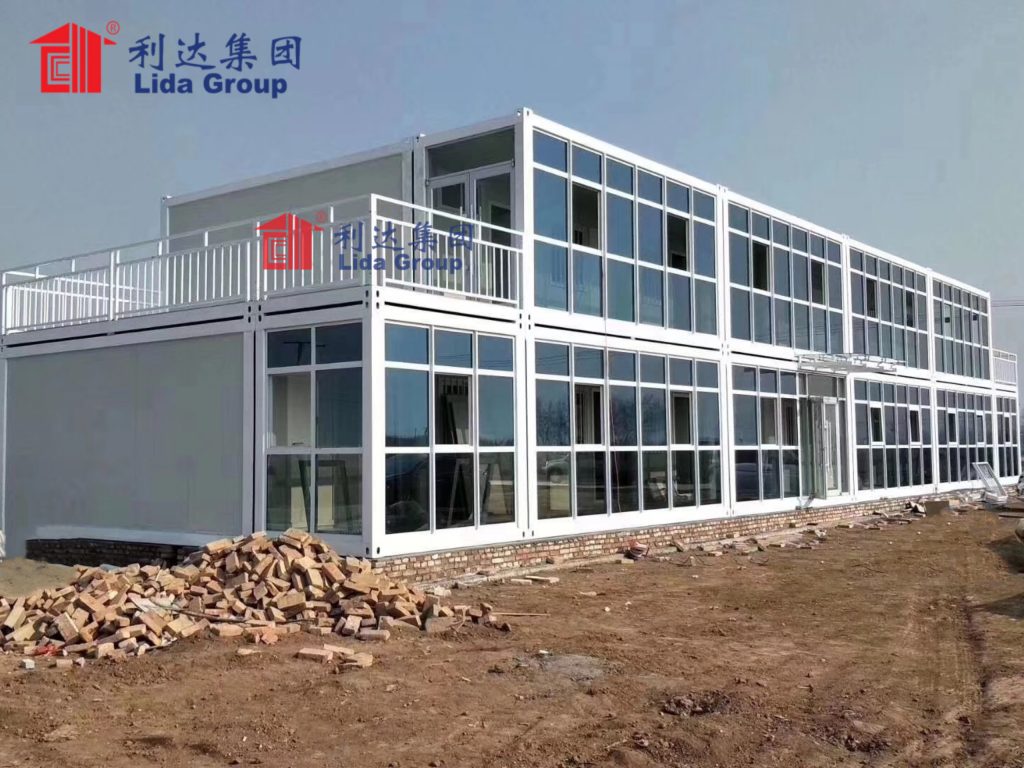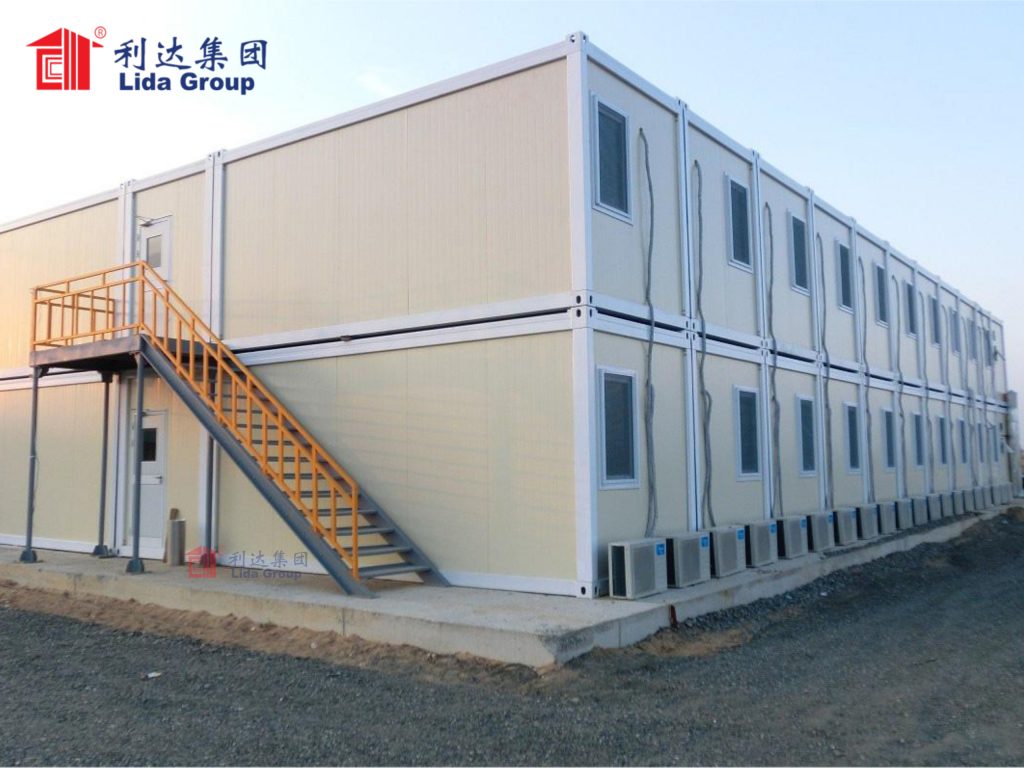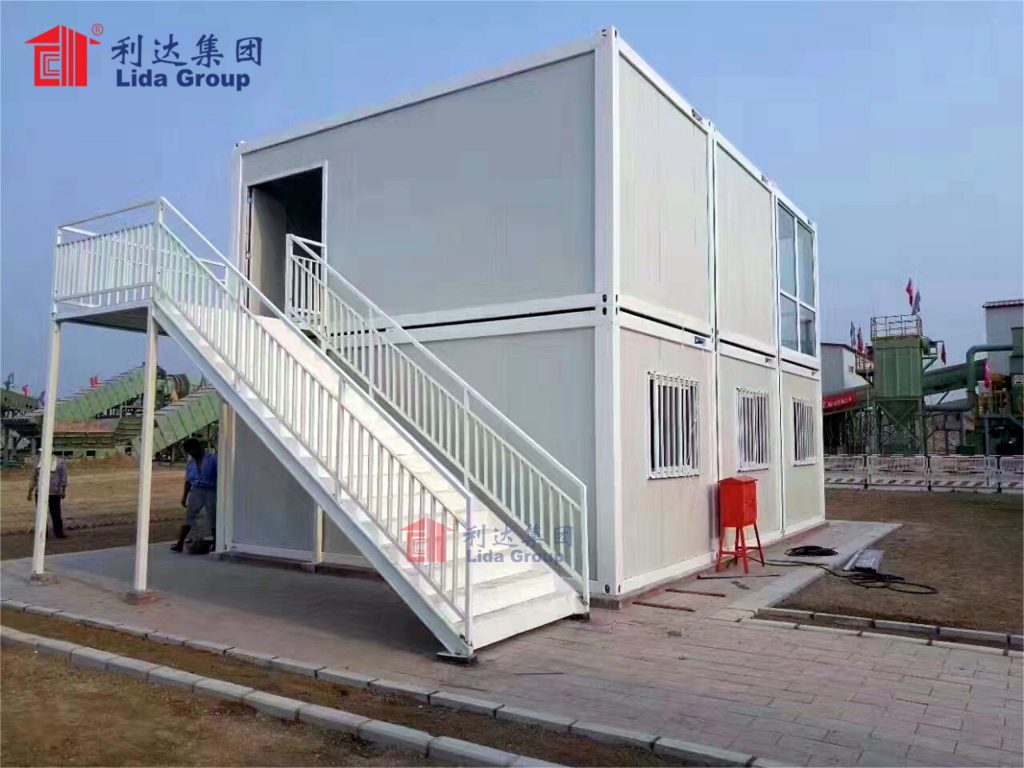A women’s rights NGO has partnered with modular construction specialist Lida Group to establish a empowerment village for displaced women migrant workers near Indonesia’s border with Malaysia utilizing portable prefab shelters promoting health, skills training and community support.
For decades, thousands of women have migrated seeking livelihoods only to face exploitation living in squalid makeshift camps trafficking them into shadow industries under debt bondage with little recourse for abuse. Enforcement crackdowns left many destitute and further marginalized.
Now, under an agreement between the Center for Women Workers’ Justice (CWWJ) and Lida Group, several acres of donated land near the Riau island of Bintan serve as a autonomous safe zone where the first phase of dignified transitional housing clusters are taking shape.

A standardized assembly system sees prefabricated sections of insulated shipping containers pre-kitted at Lida’s factory with furnishings, solar power, water capture and gender-sensitive amenities before rapid on-site assembly within days into liveable neighborhoods.
Individual elevated shelters provide independent living quarters alongside shared facilities focusing initially on health clinics, nutrition programs, cultural spaces and skills training workshops equipping displaced residents with means of social and financial empowerment.
CWWJ director Eka Sandrawati highlighted foremost priorities as restoring dignity and agency: “Our residents have endured untold hardships without support systems. This village empowers healing and building futures through community living with facilities promoting wellbeing, knowledge and life skills.”

Standardized yet innovative shelter designs prove crucial to the model’s scalability — crucial as Indonesian border closures during the pandemic left many displaced migrants further exposed until alternative housing solutions and partnerships could be arranged.
Modular buildings also optimize flexibility adapting amenities according to resident needs and interests organically emerging from grassroots discussions — whether agricultural plots, craft workshops or children’s play areas — establishing an empowered self-reliant community incrementally.
Lida operations head Julia Simanjuntak spoke of fulfilling responsibilities to vulnerable populations: “Seeing completed phases bring smiles and hope repays our efforts. Modular construction and community stakeholder processes both prove crucial enabling dignified transitioning out of unjust situations previously out of reach.”

Long-term the village aims becoming a recognized migrant support hub under a cooperative ownership model sustained through social enterprises. Partnerships help residents gain certification and market linkages for agricultural production promoting food security and financial independence.
The UN Migration Agency and Indonesian officials involved in refugee response have expressed interest in piloting integrated care models addressing root causes driving dangerous border crossings through dignified alternatives restoring social inclusion and stability within communities of origin.
In conclusion, establishing dignified transitional housing and wraparound support services through sustainable partnerships restores hope and empowerment for displaced marginalized groups lacking protection. Modular solutions prove vital scaling dignified community-led models addressing systemic challenges through decentralized grassroots solutions promoting healing, skills and self-determination.

Related news
-
Coastal regulators assess Lida Group's modular standardized assembly system delivering dignified residences capable of supporting disaster-resilient labor settlements formally integrating local shrimp farm workers formerly crowded into unsafe improvised coastal container labor camps.
2024-06-12 15:03:41
-
Humanitarian agency licenses Lida Group's weatherproof prefabricated shelter technology using composite insulating panel building skins to rapidly establish protected sites for victims as alternative to detention in degrading cheap labor camps.
2024-06-08 08:06:26
-
Researchers analyze the portability, fire resistance and cost structure of Lida Group's prototype prefab buildings utilizing recycled composite sandwich panels proposed for transitional housing solutions of seasonal laborers.
2024-06-07 15:31:57
contact us
- Tel: +86-532-88966982
- Whatsapp: +86-13793209022
- E-mail: sales@lidajituan.com


